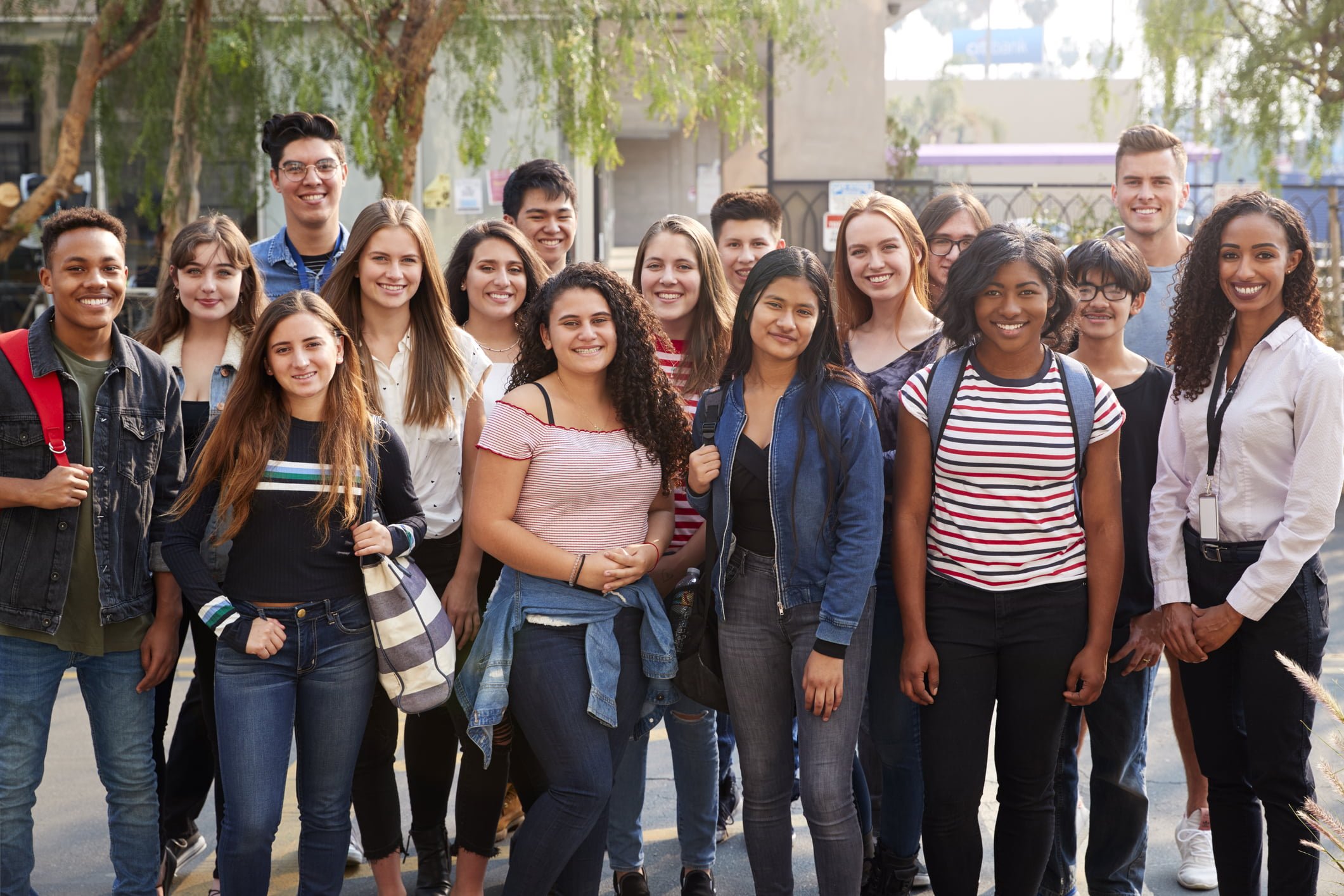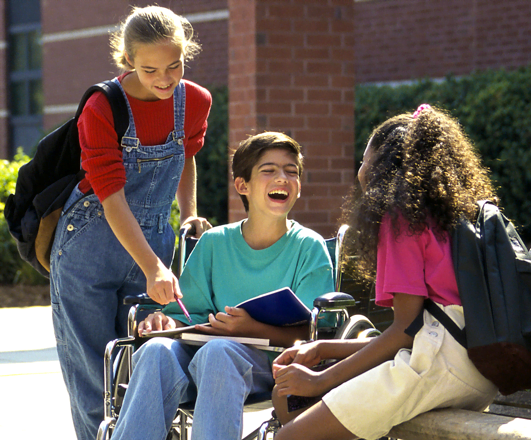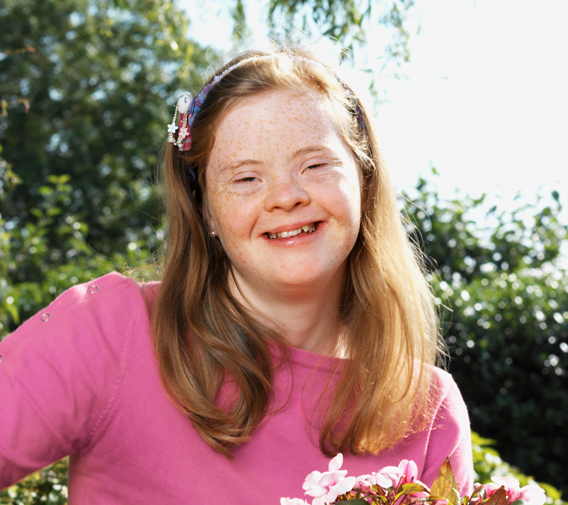Building friendships
Healthy friendships play an important role as children grow into teens and strive for more independence. Friendships can teach important life skills such as learning to share, compromise and set boundaries.

Learning to make friends and when to end a friendship are skills that can build as a child moves into adulthood where they may have more intimate relationships.
Being sociable and getting along with people are seen as important social skills. Most children learn the social skills needed for friendships by watching others around them. Some youth with disabilities may not pick up or practice these skills in the same way. Their social opportunities may be limited to a few situations and parents may worry that their child does not have friends. However, there can be lots of ways to encourage healthy relationships and some help and support can assist children and youth with making friends.
What makes a good friend?
Friends usually have something in common, such as attending the same school or being similar in age. It is important to help children and youth learn that their teachers, caregivers, and even family members are not friends. These people may be special to them, but they play a different role in their world. There will probably be a difference in age but most importantly there is a difference in power and responsibility.

Children and youth can learn that good friends are:
- Respectful
- Kind
- Safe
- Honest and trustworthy
- Patient
- Good listeners
Service providers can help by emphasizing the difference between being “friendly” and having friendships. Parents can remind youth that service providers are there to help and guide them, but not as friends.
Building skills for healthy friendships
Youth may need support building skills to develop friendship
Useful questions to discuss include:
- How do you know if a person wants to be your friend? Can you tell if someone does not want to be your friend?
- How can you ask a friend to spend time with you? What types of things can you do together?
- How do you know if this is a good friendship? How do you want to be treated?
- What can you do and say if a friend starts to be unkind and the relationship is not healthy?
Parents can help arrange time for youth to get together outside of schools and clubs. Perhaps youth can go to a movie, spend time at someone’s house or even take a trip to the mall.
For healthy friendships lesson plans on teachingsexualhealth.ca, click here.



